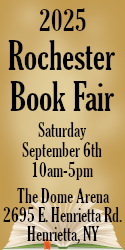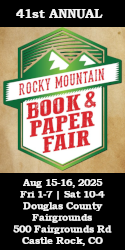Jekyll Island and the Fed
A bookseller I know once told me he rents a house on Jekyll Island for several months each winter so he can escape some of the snow and cold of New England, be within easy driving distance of southern book fairs, and play golf with his friends the rest of the time. Not a bad plan if you like golf (or fishing).
Jekyll Island, one of the barrier islands off the coast of southern Georgia, is one of the few places in the area that has escaped the commercial development that has altered so much of the coastline between Myrtle Beach and Miami Beach. For one thing, it's been a state park since the now-defunct Jekyll Island Club, that once owned the entire island, sold it to the state of Georgia some time after the second world war. For about 40 years the state park authority tried to run the club as a hotel, and by the late 1970s the place had been run down to the point that it was all but abandoned with derelicts camping out in unused rooms. In 1986 a private management company leased the premises and surrounding “cottages” from the state of Georgia, invested millions in restoration and improvements, and turned the hulk of the once private millionaires' club into the Jekyll Island Club Hotel. The present owners, along with an incredibly enthusiastic and loyal staff, have done an amazing job in achieving an historically accurate approximation of what the place was probably like when the Morgans, Rockefellers, Vanderbilts, and others hung out each winter.
Originally called Isla de Ballenas or “Island of Whales” by the Spanish occupiers, it was later named after Sir Joseph Jekyll by General James Oglethorpe. Gertrude Jekyll, the landscape designer, was a niece several times removed, and another distant nephew lent the family name to his friend Robert Louis Stevenson and was rewarded with The Strange Case of Dr. Jekyll and Mr. Hyde. All of this and more may be found in books and pamphlets by William & June McCash, Tyler Bagwell and other regional authors.
One of the highlights of our southern road trip this year was the time spent at the Hotel, learning something about the island, the Club, and its role as the Federal Reserve System's midwife. We also spent a few days along Florida's east coast and what I saw is historically connected to the meeting that took place on Jekyll Island in 1910.
After being away from Florida for two years I noticed large cars, motor homes and SUVs still seem to be everywhere, Daytona continues to attract tens of thousands of motorcyclists during Bike Week, and stock car racing remains the nation's number one spectator sport. I also saw something else. In some areas about every eighth or ninth house had a realtor's placard in the front yard, and while looking through some books at a lawn sale in a development south of Saint Augustine I asked the owner about all the “for sale” signs in his neighborhood. The reports are not exaggerated—many of them turned out to be in various stages of foreclosure.
The interesting economic times we're going through come as no surprise to people who study such things and who have been sounding the alarm for many years. It certainly isn't a surprise to Edward Griffin, author of The Creature from Jekyll Island: A Second Look at the Federal Reserve (Westlake Village, American Media, 2007). I was intrigued by the title and bought a copy at the island's only bookstore. The retail price for the privately-published paperbound edition is $24.50. Despite lack of a mainstream publisher, the book has done fairly well since it originally appeared in 1994, has gone through four editions and is now into its 20th printing. A Japanese edition was published in 2005 and a German one in 2006.
A quick check on Biblio.com and Bookfinder.com yielded some rather strange and counter-intuitive results. With on-line prices of many used books well into the single digit range, I located 126 copies, new and used, both cloth-bound and paper. They vary in price from $22.89 to $314.95, with little regard to edition, condition or format. The book is not scarce nor is it out of print. New cloth-bound copies are $36.00 and case lot discounts are available lowering the price to $14.70 in paper, $21.60 in cloth. One must wonder if some on-line booksellers do any research at all.
Griffin's book investigates debt, inflation and the 1910 meeting at the Jekyll Island Club where seven men, representing nearly 25 percent of the world's wealth, met to set up the banking cartel now known as the Federal Reserve System. It came about largely in response to the Panic of 1907 and J. P. Morgan, although not attending in person, was one of the main organizers. (JP Morgan's proposed taxpayer-assisted takeover of a bankrupt Bear Stearns nearly 100 years later might be astonishing to some—not at all to Mr. Griffin). In response to a hypothetical question “What is the Federal Reserve System?” the author claims “It is not federal and there are no reserves... furthermore, the Federal Reserve Banks are not even banks”.
The banking cartel, according to Griffin, was alarmed by the “new trend in industry to finance future growth out of profits rather than borrowed capital” and the way to reverse the trend “was to intervene in the free market and... favor debt over thrift. To accomplish this, the money supply simply had to be disconnected from gold and made more plentiful or, as they described it, more elastic”.
From a banker's perspective savings and checking accounts are liabilities and all forms of business and consumer debt count as assets, so lending institutions want people and businesses in debt forever. In plain language, if you live within your means and pay your credit card bills in full every month, you're a financial terrorist. In Griffin's words:
It is important to remember that banks do not really want to have their loans repaid... they make a profit from interest on the loan... (and) if a loan is paid off, the bank merely has to find another borrower, and that can be an expensive nuisance. It is much better to have the existing borrower pay only the interest and never make payments on the loan itself. That process is called rolling over the debt (and) one of the reasons banks prefer to lend to governments is that they do not expect these loans ever to be repaid.
In order for this to work the banking system had to completely cut the umbilicus tying the country to a gold or precious metal backed currency. When President Nixon made the final break in 1971 the road was clear for fiat currency and arcane bookkeeping methods that allowed the Fed to create money out of nothing while blowing a lot of smoke, hoping no one would catch on. Actually, some people are beginning to.
Each banking crisis or speculative frenzy tends to lead to ever larger defaults and more massive bailouts. Since insured deposits and many uninsured deposits are ultimately covered by the full faith and credit of the American taxpayer (but you knew that), we all subsidize the reckless behavior of the banking cartel through more inflation and higher taxes. Also, in the post 1971 period the Fed has with increasing frequency drastically lowered the interest rate it charges member banks, hoping to encourage citizens to save less, consume more, and keep speculative bubbles alive. People who believed their houses were actually worth what the mortgage brokers said they were are learning this the hard way, and right now some people are asking for just one more hit, another high, maybe even believing they won't crash next time.
When gold was removed from the currency equation, tying dollars to the value of oil seemed like a good alternative. As long as we could control the price and supply of oil while getting oil-producing countries to accept our paper money so they could turn around and buy goods manufactured in the United States (think of a printed voucher or store gift card), the dollar remained relatively stable and things went along rather nicely. For obvious reasons, energy independence was never part of the plan.
But a few unexpected things happened on the way to the pizza party. China manufactures nearly everything a lot cheaper nowadays and recipients of petro-dollars are spending more of them on Chinese goods instead. In order to continue outselling us in world markets China needs a lot more energy and is helping to drive oil prices even higher. This can be very annoying if you are silly enough own a Hummer or a Ford F-450 pickup truck. You may remember that Saddam Hussein even talked about pricing his oil in euros, rather than dollars, and look at where it got him. Besides, with China buying less of our national debt, who's going to finance our invasion and occupation of all the countries on the neo-con hit list? (since many of the same people are foreign policy advisors to the three remaining high-profile candidates—no matter which way you look at it Mrs.Robinson, we lose).
And one of the most mind bending chapters in Griffin's book is the one entitled “The Mandrake Mechanism”. In it he explains how in a fiat currency economy, money and debt are part and parcel of each other and that without one the other ceases to exist—that chapter alone is worth the price of the book. I've read it through twice and am beginning to wrap my brain around it.
Griffin is at his strongest when explaining how money and banking systems work but he loses his audience somewhat when he strays into big finance and socialist conspiracy theories—nevertheless, if you have more than a passing interest in the present economy or wonder whether or not you'll have enough to live on when you retire, you should read it before the next election. I remember that not long ago one of the remaining presidential candidates said something about economics not being his strong suit—now there's a chilling thought.
Even though gold-backed currency has long since disappeared from the national rear view mirror, difficult times tend to favor nations controlling basic commodities—food, energy and water. When hyper-inflation destroys an economy, people and societies who can grow much of their own food will always sit in the catbird seat—consider the case of Zimbabwe where, as the direct result of Robert Mugabe's land reform policies, Atlas shrugged and Africa's former bread basket has been turned into a basket case with 30,000 ZWD not being enough to buy a loaf of bread.
The current recession and inflationary spiral (called “stagflation” in the '70s) will probably have a disproportionately unpleasant effect on people who are in the habit of spending 110% or more of their annual income as part of their consumerist lifestyle—while more frugal self-sufficient types should escape relatively unscathed. Independent booksellers have had a lot practice these past few years and some may fall into the second group.
And that recent strike of independent long haul truckers? If it had been seriously prolonged as the result of continuing high fuel costs, it could have led to fewer 18-wheelers on our highways, more freight hauled by railroads and short haul vans and trucks, more use of public transportation (already happening in some parts of the country), stagnant sales figures for large cars and SUVs, vigorous demand for smaller fuel-efficient cars, declining consumption of gasoline and diesel fuel, a trend towards buying food and other goods produced closer to home, cleaner air, and on and on. Such a scenario must have a downside somewhere—I just can't figure out what it would be.
Unlike Griffin, I think the Fed is only partly to blame for the economic mess we're in. After petro-dollars completely replaced a gold backed currency back in 1971, there seemed to be an increased willingness, on the part of some, to use war as an instrument to achieve an economic or political purpose even though loss of moral authority came as part of the bargain.
At the moment, according to the Yahoo website, oil has hit $112.00 a barrel, and except for the basic food sector, the market is tanking again. Our industrial base may be in shambles but at least, if what I've read is true, we're the world's leading exporter of ring tones. So, to slightly rephrase Bette Davis' famous line, “fasten your seat belts, it's going to be a bumpy ride (night)”


























